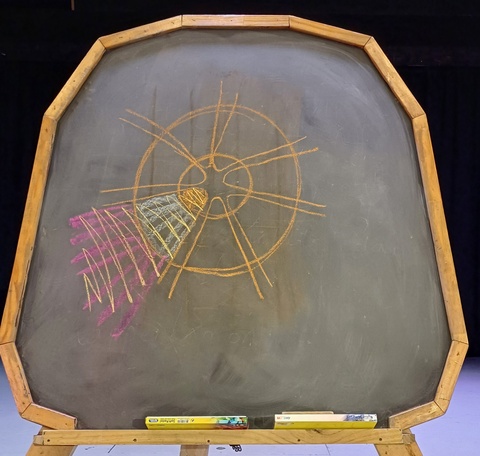Sunday 5 MayAnthroposophy in Hawkes BayNewsletter 18, 2024 Calendar of Coming Events-- Diary Dates In the Rudolf Steiner Centre, 401 Whitehead Road, Hastings (** see below for more details.)
THE LIBRETTO OF WAGNER'S PARSIFAL - a workshop or conversation with Eva Knausenberger- Friday, 17 May at 7 p.m. at the Centre, 401 Whitehead Road, Hastings. Eva gave an introduction to the libretto of Wagner's Parsifal in April. A remarkable weekendHawkes Bay produced remarkable, clement, beautiful Autumn weather for four anthroposophical events: We are fortunate to have these four special places - Taruna, Taikura, Hohepa and Weleda - which were founded many years ago by our Anthroposophical "ancestors". -------------- A lot happens when a large group of people meet. I would like to share (perhaps in my words as I recreate some moments) something of what I experienced at the Cultivating Change Conference that was enjoyed by nearly 100 participants coming from Northland to Christchurch plus an ‘interloper’ from Australia – you were very welcome NO! Stuart. It’s not "loose change" we are trying to cultivate – you coin’t do that - but you are good at jingling black-and-white keys. Dale Jones's 100 Years was a stunning piece of music – thank you for leading that. The keynote speaker was Ueli Hurter, a Biodynamic farmer from Switzerland and Vorstand member at the Goetheanum, who has been on a fleeting visit to New Zealand and is now winging his way across the ditch. Ueli spoke of three soils. The first soil: Ueli pointed to the vital importance, for our environment and bionic life, of that thin membrane of topsoil over fertile land, as a meeting/breathing place of a polarity where forces from above – warmth, light, and air - meet the forces from below – minerals and moisture – in a creative union which is the basis of much life and the crops that sustain us physically. He reflected that it was a remarkable moment in evolution when Zarathustra in the Ancient Persian Epoch introduced the plough by which humanity first tilled or broke the soil enabling people to plant crops and thus change their lifestyle from nomadic hunting and gathering to a settled life harvesting crops, leading to the first towns and trading. The second soil was that of Social Life which began to be cultivated in a threefold way by Rousseau after the French Revolution which 'removed' their kings. Rudolf Steiner linked the French motto of Liberty, Equality, and Fraternity to the qualities of Cultural life, Social [rights/responsibilities] life and Economic life. Ueli pointed to several troublesome misconceptions that plague us today: Wages are not an economic matter but a social rights matter – if someone is paid just for their time, not for their share of the value they create then they are effectively slaves - economic slaves. The role of the economy is to use carefully the earth’s resources to meet the physical/bodily needs of humanity – not to create oligarchs as we do at present. Problems in economic production require a ‘Round-Table’ approach, where all those concerned in the process should have a voice in solving problems. Dan Dunlop was inspired by Rudolf Steiner’s approach to social problems, leading him to found the World Power Conference. The third soil was the human Soul and every individual’s inner work, which is often related to various forms of crisis and loss of ‘inner compass’. I loved Ueli’s advice: “Don’t miss a good crisis!” More fully – don’t avoid, run away from or blame someone else for a crisis. If it happens to you it is part of your destiny. Embrace it. “Hear it.” Learn from it and thrive. This Soil is fourfold.
******* In the afternoon Ueli talked about the threefold structure of the Anthroposophical Society. The inner core is esoteric work and research (School of Spiritual Science). This is surrounded [and protected] by the General Anthroposophical Society who support the school and who study and use the results of Anthroposophy in their lives. The outer layer reaches out into the world of work and practical life. This relates to the threefold Cultural, Social [society] and Economic.
Radially, he pictured (soon to be) 12 (a rather cosmic number) sectors {Sections} of different realms of work such as pedagogy, medicine, social science, performing arts, natural science, youth, visual arts, and so on. LIBRARY There will be several publications going into the library soon:
Posted: Sun 05 May 2024 |
| © Copyright 2025 Anthroposophy in Hawkes Bay | Site map | Website World - Website Builder NZ |


